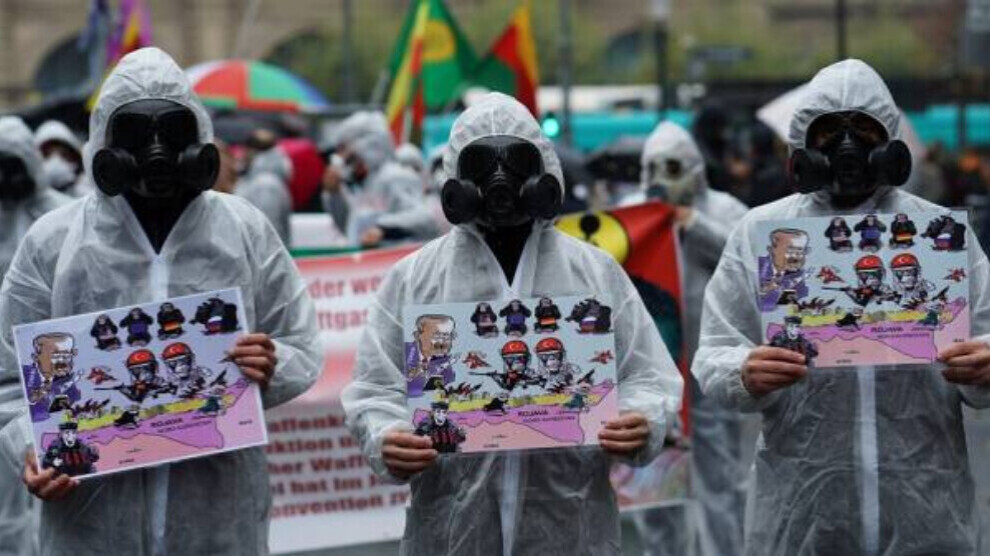HPG: Turkey is using chemical weapons
According to the HPG, the Turkish army has again resorted to the use of gas. Chemical weapons were used against guerrilla positions in the resistance areas of Kuro Jahro, Werxelê, Şahîn, Kûnîşka and Girê Ortê.
According to the HPG, the Turkish army has again resorted to the use of gas. Chemical weapons were used against guerrilla positions in the resistance areas of Kuro Jahro, Werxelê, Şahîn, Kûnîşka and Girê Ortê.

The press center of the HPG (People's Defense Forces) reported that the Turkish army has used chemical warfare agents in several areas of South Kurdistan as part of its major operation. Guerrilla positions in Kuro Jahro, Werxelê, Şahîn, Kûnîşka and Girê Ortê were affected. According to the HPG, a yellow gas was used, among other things. The HPG had previously reported the use of chemical weapons on April 18, shortly after the start of the Turkish invasion.
2021: Use of five different chemicals documented
Poisonous gas was repeatedly used by the Turkish state in southern Kurdistan last year. On 27 December 2021, Murat Karayılan, Commander-in-Chief of HPG Headquarters, reported in an ANF interview that the Turkish army uses at least five different types of chemical warfare agents in its occupation attacks in Southern Kurdistan.
The gases were classified as follows:
Tabun: The neurotoxin is the oldest of the three so-called G-warfare agents, alongside soman and sarin. It can be absorbed through the skin and by breathing. It affects how nerves transmit signals to muscles and other nerves. Those affected become paralyzed, stop breathing and die.
Green Cross: The lung warfare agent contains chloropicrin as an active ingredient. Chloropicrin burns the skin and causes eye irritation and the development of pulmonary edema. It causes shortness of breath, frothy red sputum, and anxiety.
Mustard gas: The skin warfare agent, also known as yellow cross, belongs to the mustard group. Lost is a powerful skin toxin and has been shown to cause cancer. The effect on the skin is comparable to severe burns or chemical burns. Large, painful blisters form. The injuries don't heal well. The tissue is permanently destroyed and cell division is inhibited. Larger affected limbs usually have to be amputated. If the vapors are inhaled, the bronchi are destroyed.
Unknown sleeping gas: Another gas used by the Turkish army makes those affected sluggish, causes memory loss and causes them to collapse. Man is unable to move and temporarily paralyzed.
Tear gas: Tear gases are substances that are irritating to the eyes and mucous membranes. Police organizations refer to them as irritants and they are used, for example, to break up demonstrations. If someone sprays tear gas in closed rooms, the following is said: Immediately take the nearest escape route to the outside! Depending on the concentration, there may be a danger to life.